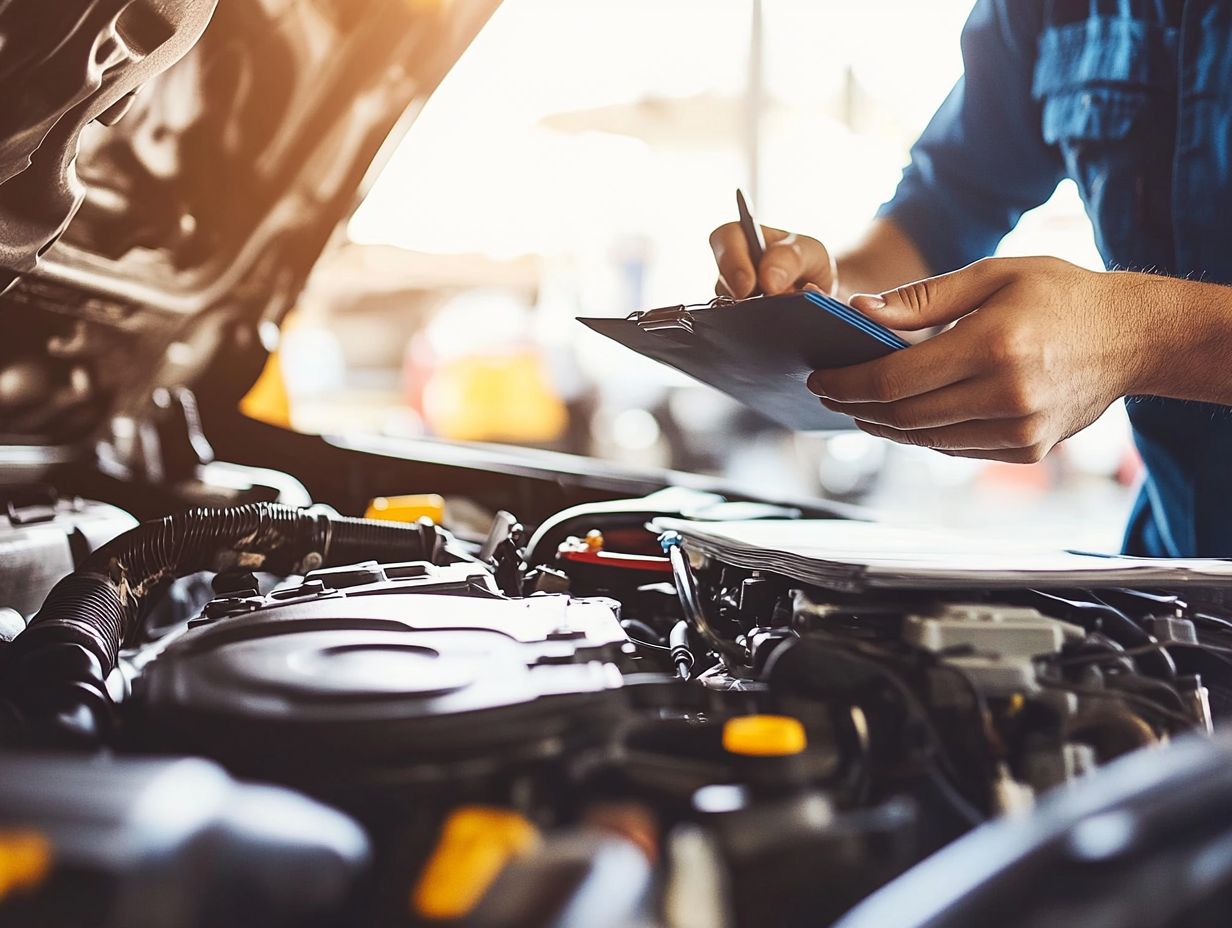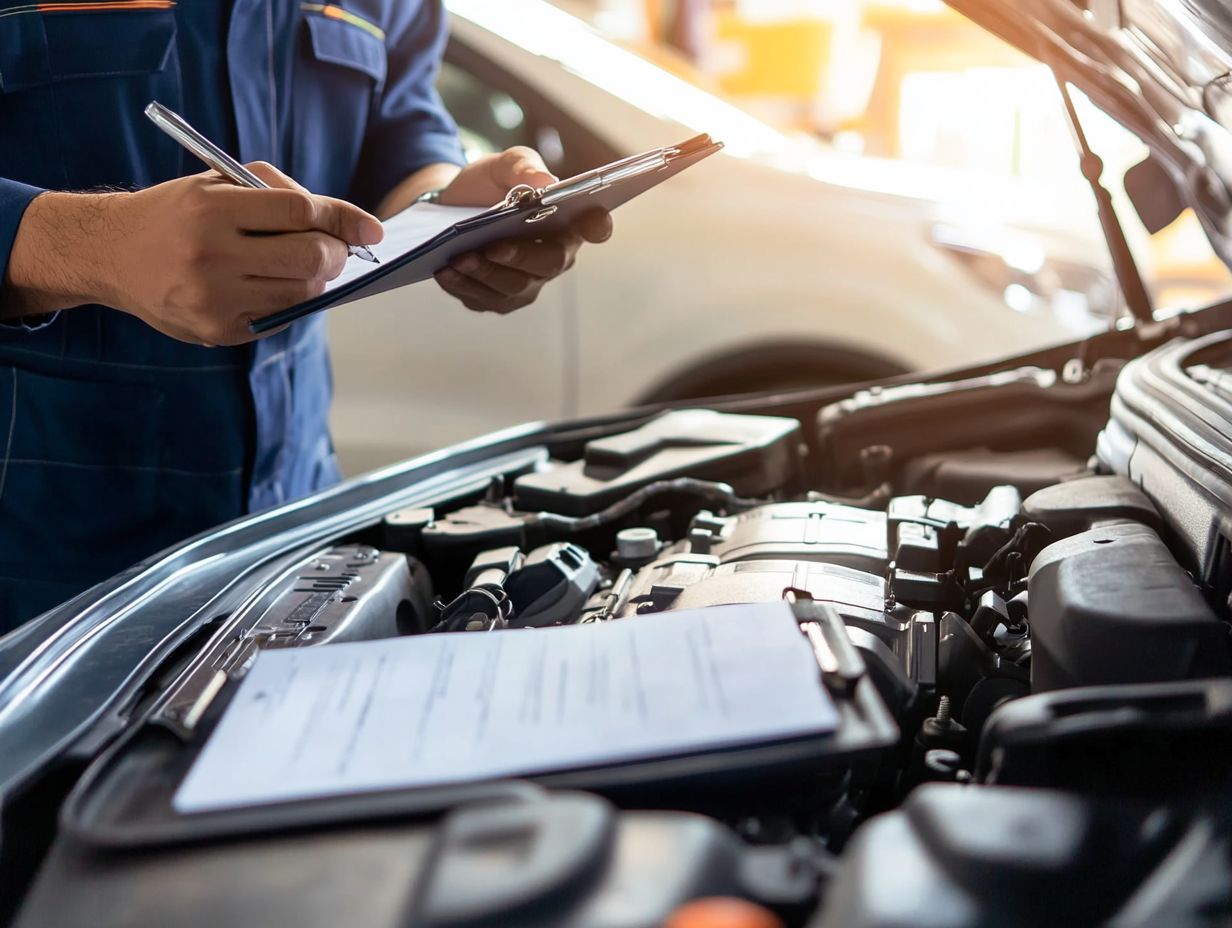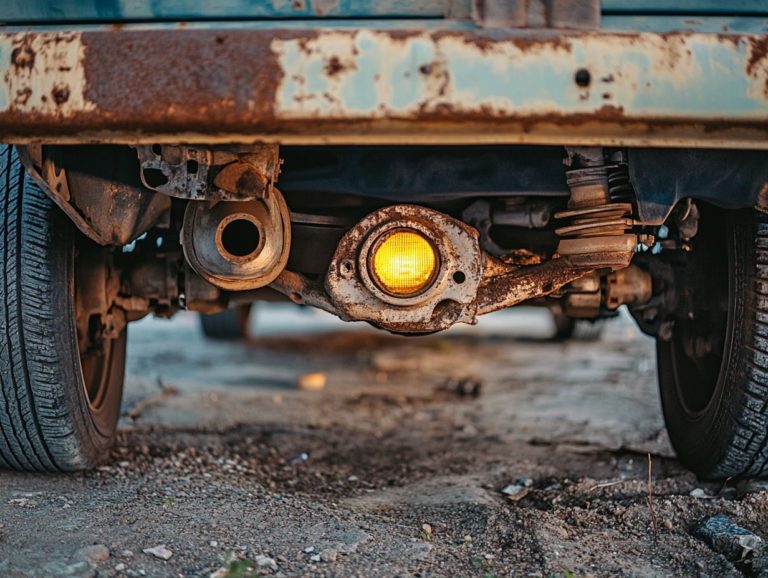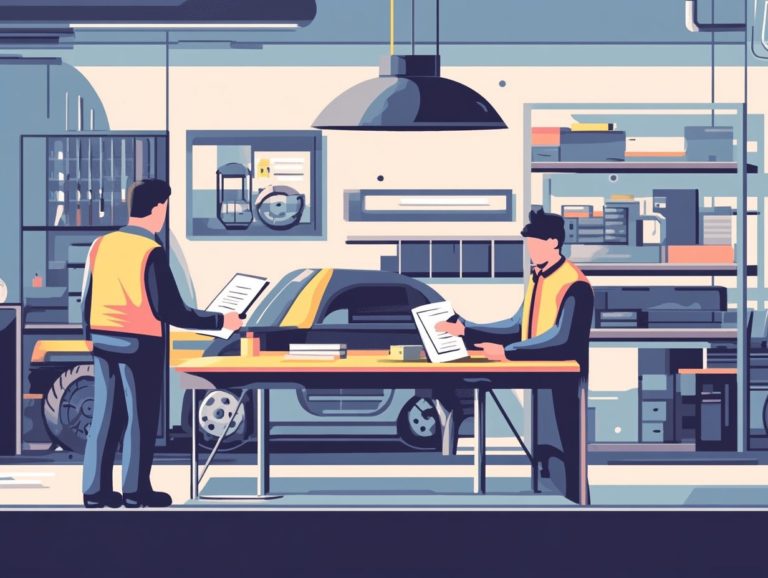How to Avoid Buying a Lemon: Inspection Tips
Buying a car is an exhilarating milestone. However, it can quickly turn into a nightmare if you end up with a lemon a vehicle that has major problems.
This guide is your compass in the world of used cars. It highlights the risks that come with lemon vehicles while offering essential strategies to avoid them.
You’ll find a pre-purchase inspection checklist and insights on legal protection if you make an unfortunate purchase. This guide contains crucial information you won’t want to overlook.
Delve in to safeguard yourself against costly mistakes and ensure you drive away in a dependable vehicle.
Contents
Key Takeaways:

Do your research and inspect the vehicle thoroughly before making a purchase to avoid buying a lemon car. Look for red flags and potential issues during the inspection, such as rust, strange noises, or mismatched paint. For more guidance, check out how to inspect a used car before purchase. Additionally, request a vehicle history report and consider getting a professional inspection to ensure the car is in good condition before buying.
What is a Lemon Car?
A “lemon car” refers to a vehicle that has major problems affecting its operation, safety, or value. It makes it hard for you to use the car as intended.
These problems often appear soon after purchase, usually within the warranty period. They can involve critical issues with the engine, transmission, or brakes, compromising the vehicle’s integrity.
To qualify for protection under lemon laws, you must meet specific criteria, including how often the car has been repaired and the nature of the issues. This usually requires a set number of failed repair attempts by authorized dealers.
Understanding your consumer rights and lemon laws is essential for many buyers. These laws protect you if you buy a faulty car, offering peace of mind against financial pitfalls.
Why You Should Avoid Buying a Lemon

Avoiding the purchase of a lemon car is crucial because of the financial and safety risks involved. To ensure a smoother buying process, consider following helpful tips for a successful car inspection negotiation. Owning a car with significant defects can lead to unexpected repair costs, lower your resale value, and put your safety at risk.
This can be alarming, especially with used cars that may have hidden repair histories or safety recalls. The emotional and financial strain of dealing with a lemon can quickly overshadow any initial savings you thought you scored at the used car lot.
That s why it’s vital to stay informed and vigilant throughout your car-buying journey. Don t wait until it s too late act now to protect your investment!
Financial and Safety Risks
The financial and safety risks tied to buying a lemon car can be substantial. These vehicles often hide problems that lead to hefty repair bills and affect performance.
As a potential buyer, it’s essential to recognize the dangers of safety recalls and the possibility of recurring issues that the seller or dealership may not disclose.
Costly repairs can spiral out of control, especially if critical components like the engine or transmission fail unexpectedly. This diminished performance can also lower fuel efficiency, leaving you spending more at the pump.
Safety recalls add more concern. These vehicles may have unresolved issues that could jeopardize your safety on the road. A recalled vehicle s reliability may be significantly compromised, exposing you to breakdowns or accidents.
Conducting thorough research and vehicle history checks is crucial for anyone looking to avoid the long-term financial burden that lemon cars can impose.
Pre-Purchase Inspection Checklist

A comprehensive pre-purchase inspection checklist is essential for anyone thinking about buying a used car. It helps you uncover potential issues like hidden damage or engine problems that could affect the vehicle’s reliability and safety.
Working with a reputable mechanic for a professional inspection can provide invaluable insights into the car’s condition. This ensures you make a well-informed decision before committing to a purchase.
Important Areas to Inspect
When you’re doing a pre-purchase inspection on a used car, it’s crucial to focus on several key areas. Begin with a thorough visual assessment of both the exterior and interior.
Next, closely examine critical components like the engine, tires, and the overall condition of the vehicle. This diligence can help uncover hidden problems that might not be immediately apparent.
Pay special attention to signs of major damage, as these can significantly impact the vehicle’s safety and reliability. During this process, carefully check for any paint inconsistencies or rust on the exterior, which could hint at past accidents or neglect.
Inside the cabin, evaluate the functionality of the electronics and the condition of the upholstery. Look for any signs of water damage.
Under the hood, a meticulous assessment of the engine s belts, fluids, and battery integrity is vital. Neglecting these elements could lead to costly repairs down the line.
Lastly, examining the tires for wear patterns can provide valuable insights into potential alignment issues or suspension problems. Each of these checks reveals the true state of the vehicle, giving you the power to make informed decisions and ensuring that your investment is both sound and secure.
Additional Tips for Avoiding Lemon Cars

Using extra buying tips can help you avoid lemon cars. Knowing how to make the most of your car inspection, researching the vehicle’s history, looking into dealership reviews, and consulting consumer reports are all essential steps to uncover any potential red flags.
Learn about lemon laws in your state gives you the power to protect your consumer rights should you inadvertently purchase a defective vehicle.
Researching Vehicle History and Red Flags
Researching the vehicle history is essential for identifying potential red flags, such as car defects, title issues, and odometer fraud. These factors could signal underlying problems with the used car you re considering.
Tools like CARFAX and consumer reports can be invaluable in uncovering critical information, including past accidents or safety recalls that could compromise the vehicle’s reliability and safety.
As a prospective buyer, actively seek out signs of consistent maintenance records. A well-cared-for vehicle is significantly less likely to present substantial problems down the road.
Checking the service history can reveal how frequently the vehicle received necessary repairs and whether it underwent regular inspections. It’s also crucial to verify the vehicle identification number (VIN) against various databases to ensure that the listed specifications align with the actual car.
Paying close attention to the vehicle s environment, such as any history of flooding or geographical concerns, can illuminate hidden issues. By adhering to these guidelines, you give yourself the power to make informed decisions and sidestep future complications.
What to Do if You Accidentally Buy a Lemon
If you end up with a lemon car, know that there are legal options available to help you! You ll want to assert your consumer rights, which may include seeking warranty coverage or pursuing reimbursement for any repair costs stemming from the vehicle’s defects.
Act quickly to protect your investment! Familiarizing yourself with the lemon laws specific to your state can greatly influence the success of your efforts to navigate this challenging situation.
Stay informed and protect your purchase to enjoy a reliable ride!
Legal Options and Next Steps
When you find yourself in the unfortunate position of owning a lemon car, knowing your legal options is crucial. This helps protect your rights as a consumer.
This journey might involve reviewing your purchase agreement and reaching out to the dealership for potential resolutions that align with lemon laws.
Understanding the specific provisions in your state empowers you to take necessary actions for reimbursement or securing a replacement vehicle. To kick off this process, it’s essential to meticulously examine the contractual obligations laid out in your purchase agreement, focusing particularly on the warranty terms and conditions.
Stay in touch with the dealership! It’s crucial to document everything. Insist on written confirmations for any offers or repairs. If the issue remains unresolved, it s time to take action. File a formal complaint with a consumer protection agency today!
Familiarize yourself with your state’s lemon laws. These outline the specific criteria that identify a lemon car, including the required number of repair attempts and the limits on mileage and duration of ownership. Being informed will help you navigate this challenging situation with confidence.
Frequently Asked Questions
What is a “lemon” when it comes to buying a car?
A “lemon” is a term used to describe a vehicle that has significant defects or mechanical issues that were not disclosed at the time of purchase. These issues can be costly to fix and may make the car unreliable or unsafe to drive.
How can I avoid buying a lemon?
The best way to avoid buying a lemon is to thoroughly inspect a vehicle before making a purchase. This includes checking its history, conducting a test drive, and reviewing what car buyers need to know about inspections by having a professional mechanic inspect the car.
What should I look for during a test drive?
During a test drive, pay attention to the car’s handling, braking, and acceleration. Listen for any unusual noises, and make sure all of the car’s features are working properly. Also, take note of any warning lights that may appear on the dashboard.
Why is it important to check a car’s history?
A car’s history can reveal important information, such as past accidents or major repairs. It can also show if the car has been regularly maintained or if it has ever been declared a total loss by an insurance company.
Should I have a mechanic inspect the car?
Yes, it is highly recommended to have a professional mechanic inspect the car before making a purchase. They can identify any potential issues and provide an estimate of the cost to repair them. This can help you make an informed decision about whether or not to buy the car.
What documents should I ask for when buying a used car?
When buying a used car, you should ask for the vehicle’s title, registration, and service records. You may also want to request a vehicle history report and any receipts for recent repairs or maintenance. These documents can provide valuable information about the car’s history and condition.






